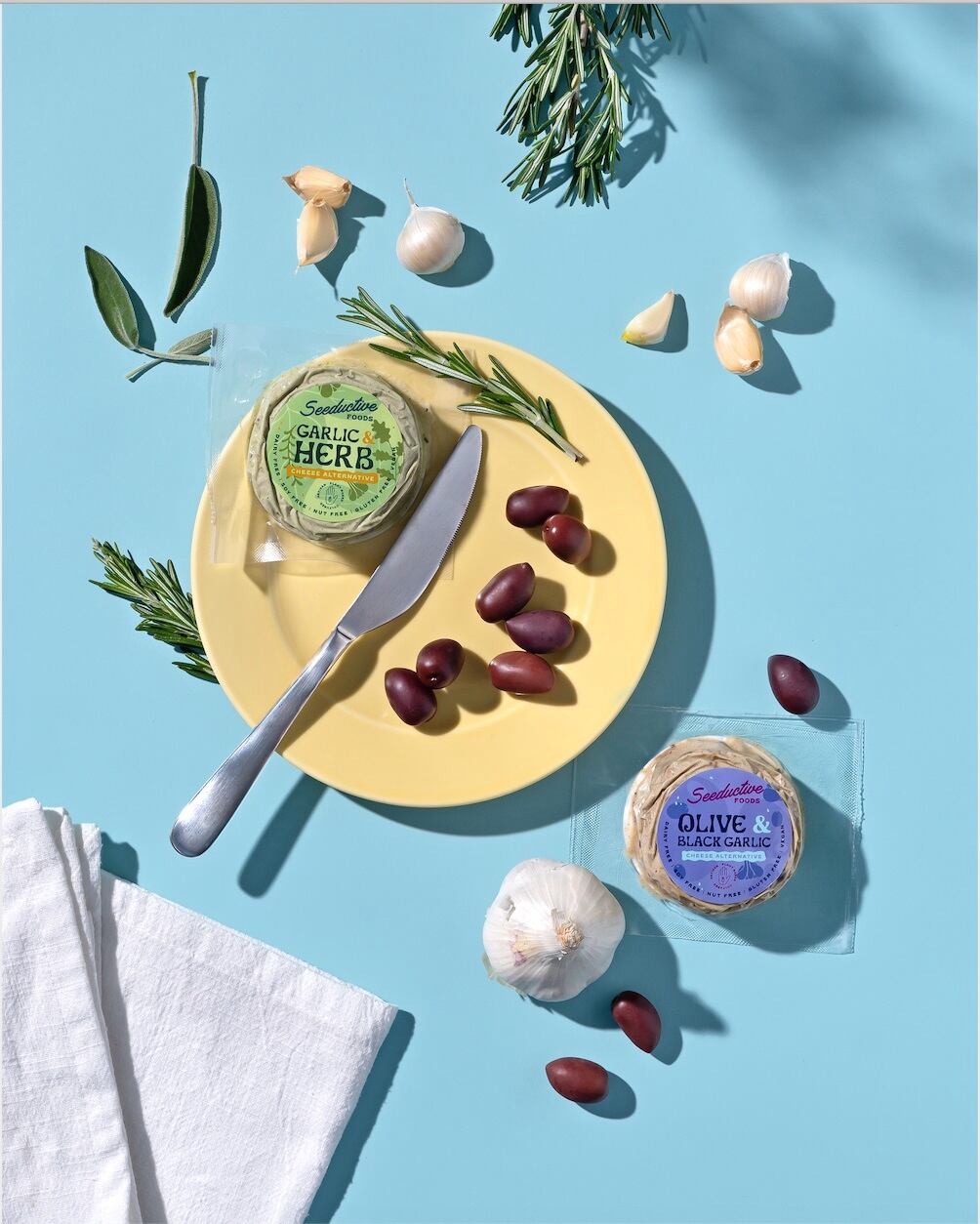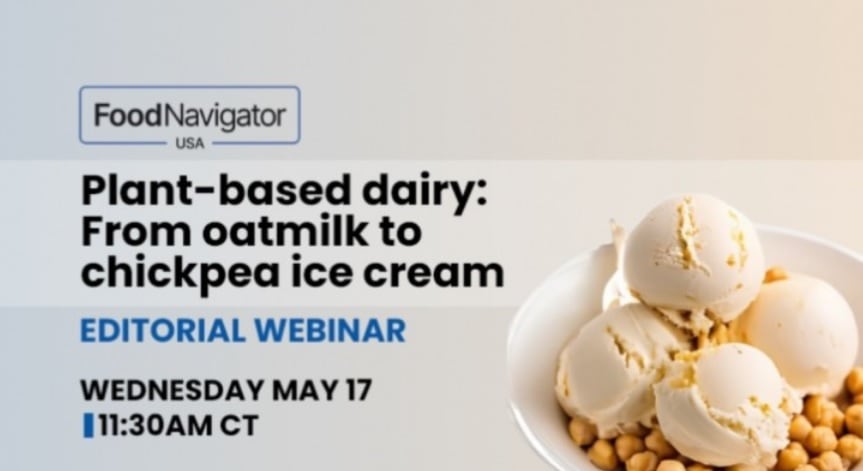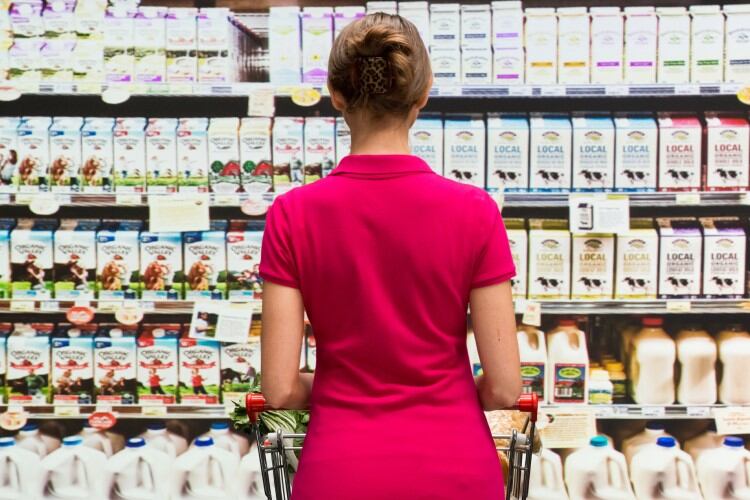In 2022, unit sales of plant-based products fell 3% to 1.9bn even as dollar sales were up 7% to $8bn – a dichotomy that reflects higher price points that simultaneously bring in more money but also prompted some consumers to pull back on quantity, according to data in the Good Food Institute’s recently published Plant-Based State of the Industry report.
Within plant-based, some of the most prominent categories saw unit declines from 2021 to 2022, including plant-based milk, which fell 2%, plant-based meat, which dropped 8%, plant-based cheese, which tumbled 8% and plant-based butter, which decreased 11%, GFI reports.
But, the report also found a few bright spots where both units and sales were up, including plant-based plant-based cream cheese, sour cream and spreads, which saw units inch up 2% to 24m and sales climb 7% to $129m.
Stockeld Dreamery envisions new approach to plant-based cheese
An established player in Sweden but a newcomer to the US, Stockeld Dreamery is hoping to further expand the plant-based cream cheese market by attracting “as many dairy-lovers as possible” with a trio of chickpea and lentil protein-based Creamy Spreads.
“All of the non-dairy cream cheeses are going after the same 4-6% of the market of consumers who have already made a decision to avoid dairy for health, environmental or ethical reasons. While our products will first be enjoyed by dairy-free consumers, we are executing a plan to expand beyond this small segment and into the mainstream, where one day we see a third to a half of the cheese market being non-dairy,” company founder and CEO Sorosh Tavakoli told FoodNavigator-USA.
He explained that Stockeld Dreamery hopes to do this by offering “a fantastic product experience using cultured legumes and … a bold and accessible brand that appeals to the mainstream.”
Stockeld Dreamery uses traditional cheese-making processes to culture chickpea and lentil proteins “to make a tangy, creamy cheese that holds up well in heat,” and which Tavakoli said has brough more than one customer to tears “because they hadn’t tasted a non-dairy cheese that was so good before.”
He explained that most non-dairy cheeses in the US have not met consumer expectations – “a kind way to say ‘have been disgusting’” – because they are mostly uncultured starches and oils.
Go-to-market strategy skips 'free-from' to center on 'full of'
Beyond the product, Tavakoli said Stockeld is “trying to be really thoughtful around our positioning” to appeal to more mainstream consumers by “avoiding [focusing] too much on what we are free from, dairy, and rather focus on what we are full of, cultured chickpeas and lentils, live bacteria, protein, etc.”
His logic is that “as much as people are actively looking for dairy free products, they are also looking for other things.”
The company also hopes to catch mainstream consumers’ attention with bright orange packaging and messaging centered on “taste and fun first, rather than preaching about the environment,” Tavakoli said.
He noted that while making the planet better is “extremely important to us,” it is not a message that will win over the mainstream.
“We need to build trust first with great products and relatable messages similar to what happened in the non-dairy milk segment. Oatmilk grew because of the taste, texture and catchy marketing,” he said.
Foodservice is central to initial traction
Also like oatmilk players, Stockeld Dreamery will focus first on foodservice to build brand awareness before expanding into retail.
“There isn’t going to be much natural pull-through in retail (the category leader only does about two to three units per store per week). We need to build excitement and awareness on our own first before jumping into grocery. Bagel shops allow us to do that,” Tavakoli said.
He explained that the brand can place large signs in stores, takeover menu screens, create a featured sandwich and sample consumers through bagel shops.
“Our plan is to create a branded presence at the top NYC bagel shops this year to build awareness and authenticity and then use that momentum to expand into NYC retail and the Northeast Food Service & Retail … before eventually going national in a few years,” he said, adding: “It is not a race to a certain number of doors, we need to make sure to grow smart with high rates of sale so that we can add the most value to each our customers.”
Eventually the young brand plans to expand beyond cream cheese and offer a melting sliced burger cheese, which is currently in R&D. For that product, too, the company plans to focus first on foodservice.
“We are currently meeting with top burger shops like Shake Shack and Slutty Vegan for feedback as we finalize the cheese,” he said. “We are very excited about the response we’ve gotten from this product as well.”
Seeductive Foods sees longer term potential in plant-based cheese segment
Seeductive Foods is another newcomer hoping to carve space in the and broader plant-based cheese segment, which GFI reports has high double-digit growth in both dollar sales and unit sales on a three-year stack despite a dip in both in the past year.
According to GFI, sales of plant-based cheese grew 51% between 2019 and 2022 and units were up 44% in the same period, before dipping low-single digits in the past year. This suggests that while consumers are willing to try plant-based cheeses, they may not consider them worth the extra cost when overall budgets are tighter.

Seeductive Foods founder and CEO Meghan Barbera still sees potential for the segment, though, especially as products – like hers – become more innovative, realistic and less processed.
“The huge growth for plant-based milk shows consumers crave plant-based substitutes; but, plant-based cheese lags behind as the current options are often highly processed, commonly contain other allergens, and don’t satisfy in taste or texture,” she said.
“What sets us apart from other alternatives in our category isn’t just our unique seed milk base, but that Seeductive Foos is the only brand making pumpkin and hemp-based cheeses free of top nine allergens, added modifiers like coconut oil, gums/starches or flavors.”
As a result, she told FoodNavigator-USA, “consumers are realizing they don’t have to choose between giving up dairy or suffering the consequences if they choose to eat” because plant-based options are becoming more sophisticated.
Like Stockeld, Seeductive isn’t targeting just consumers who are dairy-free – Barbera says her products are “inclusive for all eaters” and don’t compromise on flavor.
“Our seed-based alternatives aim to bridge the gap between plant-based and dairy-free diets. From vegans to lactose-intolerant omnivores to the health-conscious mom, our customers are thrilled to be able to enjoy cheese once again,” she said.




